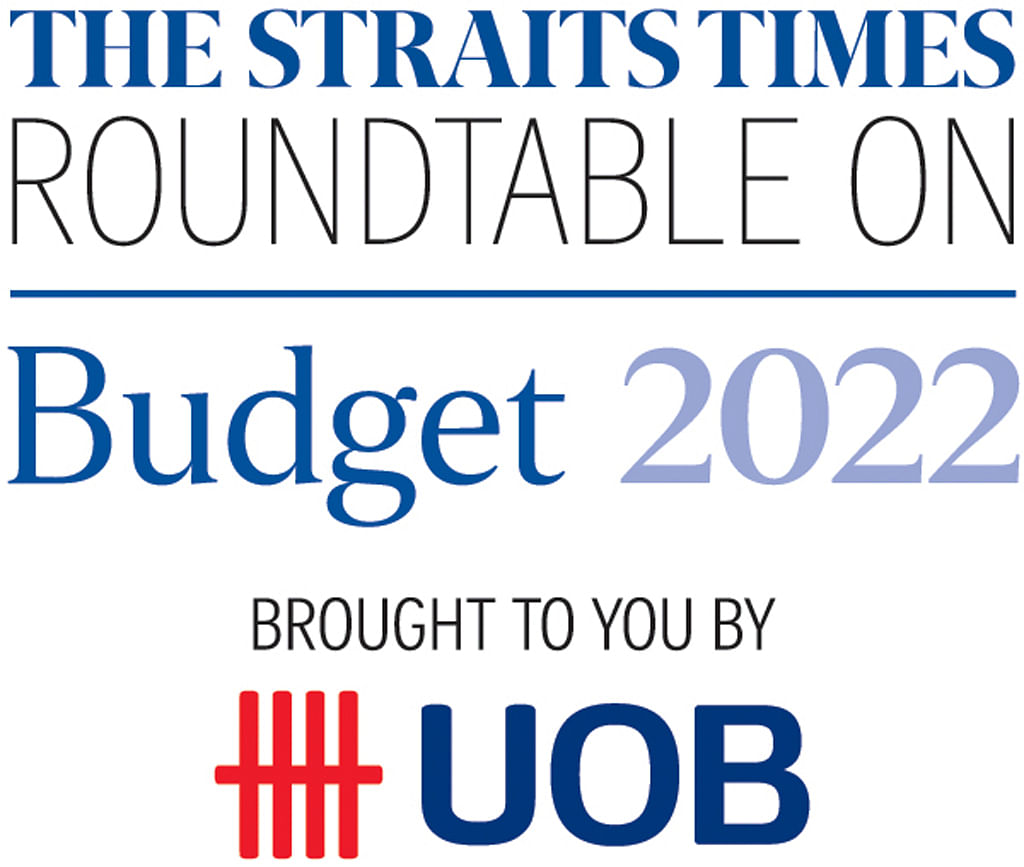A balanced Budget with focus on building for the future: ST-UOB panel
Sign up now: Get ST's newsletters delivered to your inbox
Five of the key points raised during the ST-UOB roundtable – moderated by ST associate editor Vikram Khanna – were the need for businesses to transform, sustainability, the GST increase, options for gig workers and support for SMEs.
Follow topic:
SINGAPORE - Budget 2022 was about addressing the costs incurred during the Covid-19 pandemic and moving forward steadily into the future, said panellists on Monday (Feb 21) at a roundtable discussion on the Budget delivered last Friday.
The panel, organised by UOB and The Straits Times, was moderated by ST associate editor Vikram Khanna.
Overall, the Budget "is a very fine balance between addressing Singapore's short-term needs, but also having a very good focus on the medium- to long-term priorities of Singapore," said UOB economist Barnabas Gan.
"There's something for the households, something for businesses, and a very big thing is the green economy."
One of the main Budget announcements was that the goods and services tax (GST) rate will increase from 7 per cent to 9 per cent in two stages - one percentage point each time on Jan 1, 2023, and Jan 1, 2024.
This will bring in about 0.7 per cent of gross domestic product in revenue annually - about $3.5 billion - when the full hike is in place in 2024.
It will go towards supporting healthcare expenditure and taking care of senior citizens while other areas of social spending rise as well.
Panellist Richard Mackender, who is Deloitte's indirect tax and corporate secretarial services lead, said: "My take is that taxes have to move to be able to address the costs that Singapore has incurred over the pandemic, and also looking forward to making sure that Singapore is ready for the future."
Singapore Business Federation chief executive Lam Yi Young added that while the 2020 Budget was about survival and the 2021 Budget about recovery, this year's Budget has a strong focus on growth for the future.
"I think that is a very important message of optimism and hope for companies to say that there is a way forward for Singapore's economy and that this is the path we're going to go to grow," he said.
He added that besides being forward-looking, there was also still help for small- and medium-sized enterprises (SMEs), particularly those impacted by Covid-19.
The Budget measures also give a signal that Singapore is moving away from being in a Covid-19 crisis mode and instead building for the future, which is a "huge confidence-builder", said National Trades Union Congress assistant secretary-general Desmond Choo.
"I think it also signifies the building of a new social compact with Singaporeans and the Singaporean worker," he said.
He added that the Budget tackles anxieties about global competition and inequality, and shows what Singapore must do to thrive in the new world order.
Also unveiled were increases in personal income, property and luxury vehicle taxes. "Those who earn more contribute more," Finance Minister Lawrence Wong had said.
Higher minimum qualifying salaries for Employment Pass and S-Pass holders were introduced, while the proportion of foreign workers a firm can employ for the construction and process sectors was cut.
Such foreign worker policies, taxes, upskilling local manpower, including gig workers, and keeping Singapore attractive to multinational corporations were also topics discussed at the roundtable.
Watch the full panel discussion here:

<p>sabudget22</p>
PHOTO: No credit

